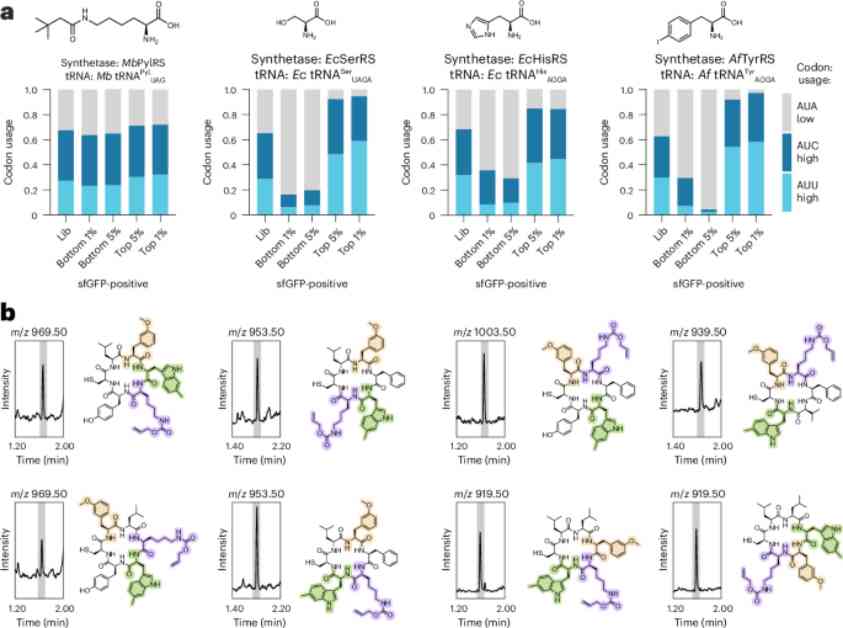Scientists have made a significant breakthrough in genetic code expansion by developing recoded gene circuits that allow for the incorporation of non-canonical amino acids into polypeptides. This advancement, published in Nature Biotechnology, demonstrates the use of quadruplet codons to enable the multiplexing of non-canonical amino acids within single polypeptides in living cells.
The key finding of this research is that including high-usage triplet codons after quadruplet codons can enhance their decoding efficiency in genetic circuits. This improvement has paved the way for the development of a system that enables the programmable biosynthesis of exotic macrocyclic peptides in cells.
By leveraging quadruplet decoding and the incorporation of non-canonical amino acids, scientists are now able to expand the genetic code without modifying the host genome. This approach opens up new possibilities for the production of complex peptides and proteins with diverse functionalities.
Previous studies have laid the groundwork for this research, including the development of methods for site-specific incorporation of unnatural amino acids into proteins. These foundational studies have contributed to our understanding of the genetic code and have set the stage for the latest advancements in genetic code expansion.
Overall, this research represents a significant step forward in the field of synthetic biology and genetic engineering. The ability to expand the genetic code in living cells without modifying the host genome has broad implications for biotechnology, pharmaceuticals, and basic research.
Moving forward, scientists will continue to explore the potential applications of recoded gene circuits and genetic code expansion. By harnessing the power of quadruplet codons and non-canonical amino acids, researchers aim to unlock new possibilities for the design and production of novel peptides and proteins with tailored functions.
The findings from this study highlight the importance of orthogonality in genetic circuits and the central dogma of molecular biology. By developing efficient genetic code expansion strategies, scientists are pushing the boundaries of what is possible in bioengineering and opening up new avenues for innovation in the life sciences.
In conclusion, the development of recoded gene circuits for multiplexed genetic code expansion represents a significant advancement in the field of synthetic biology. This research has the potential to revolutionize the way we design and engineer biological systems, paving the way for the creation of novel biomolecules with diverse applications in medicine, biotechnology, and beyond.
